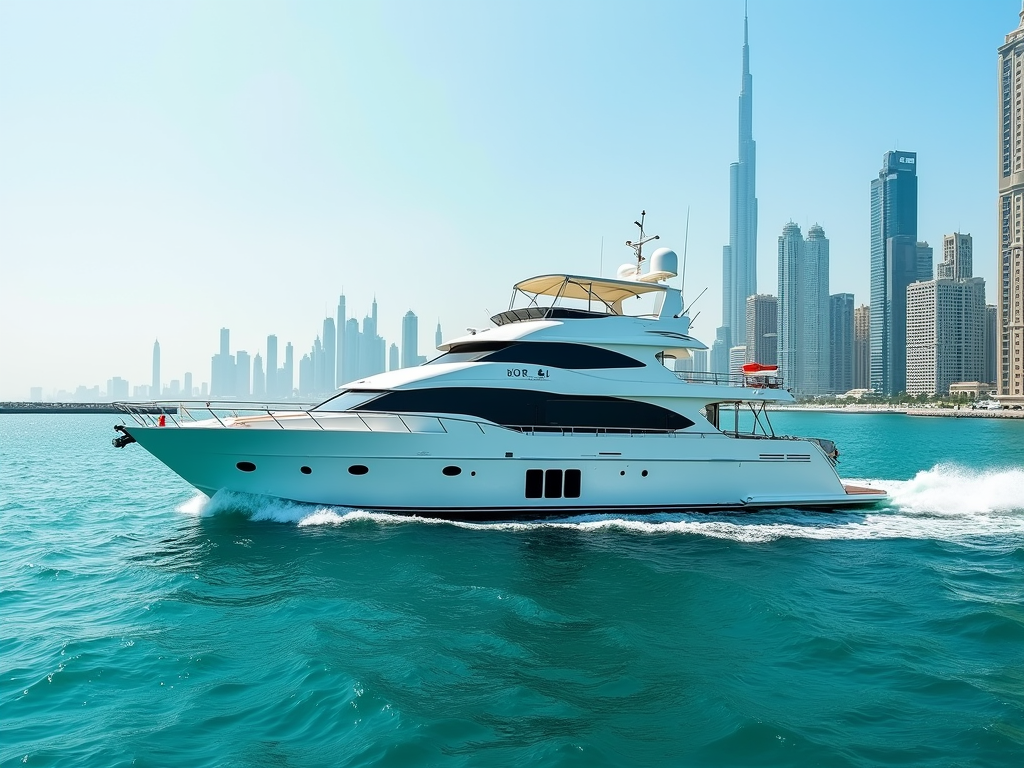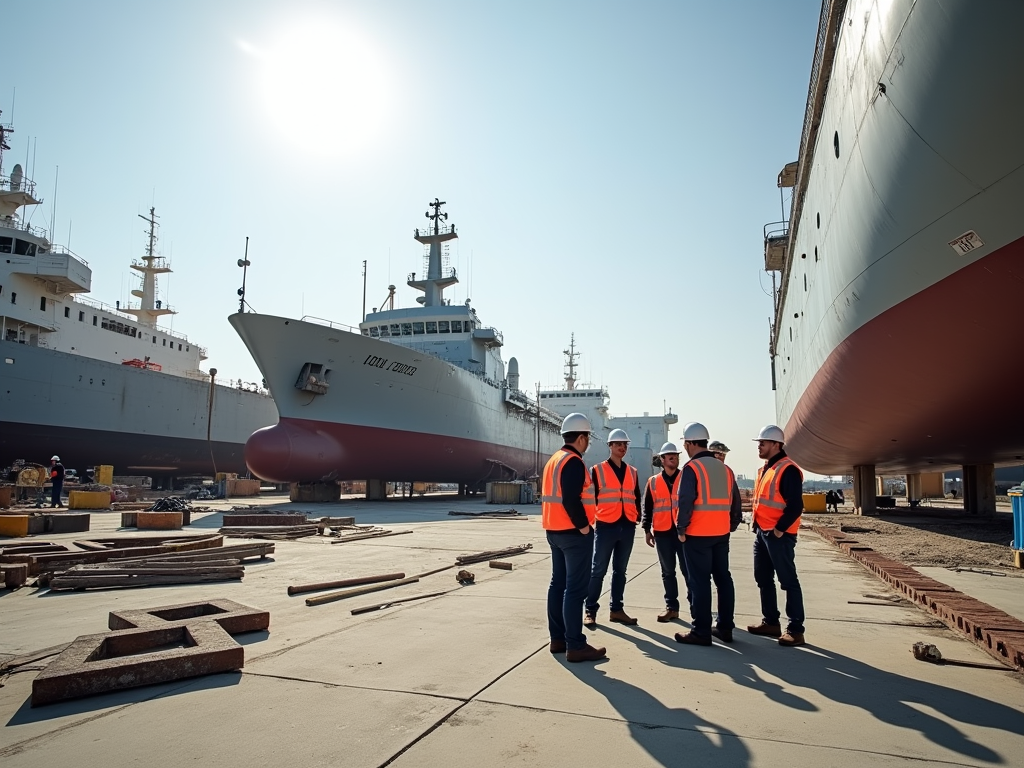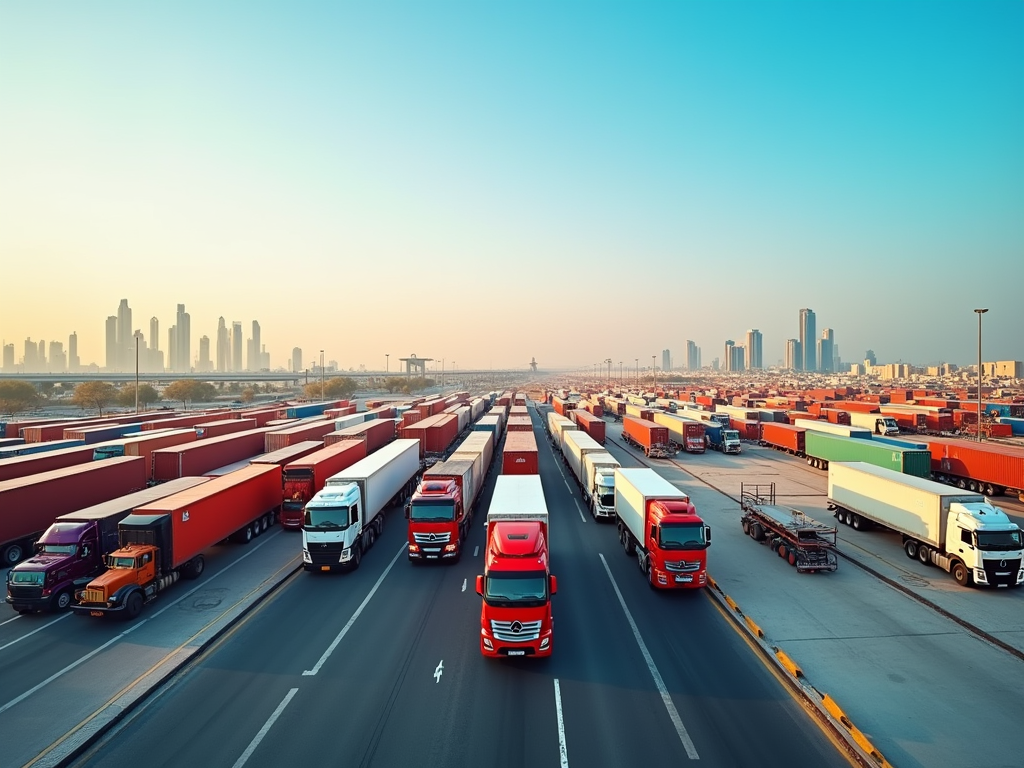Dubai’s Maritime Industry: Business Opportunities and Challenges
The maritime industry in Dubai is a dynamic sector, offering a wealth of business opportunities while presenting unique challenges. With its strategic location along key shipping routes, Dubai serves as a global maritime hub, attracting numerous players in shipping, logistics, and marine services. This article explores the vibrant landscape of Dubai’s maritime industry, highlighting its potential, pitfalls, and business prospects.
Overview of Dubai’s Maritime Sector

Dubai’s maritime sector stands as a beacon of economic diversification and development within the UAE’s growth model. The Emirate boasts an extensive port infrastructure, including the renowned Jebel Ali Port, one of the largest man-made ports in the world. This sector encompasses various activities including shipping, shipbuilding, maintenance services, and marine tourism. Here are some key elements that define Dubai’s maritime landscape:
- Port Facilities: Jebel Ali Port and Port Rashid provide world-class services and connectivity.
- Free Zones: The Dubai Maritime City and Jebel Ali Free Zone encourage maritime businesses with distinct advantages.
- Regulatory Framework: Policies support investment and innovation while maintaining safety and environmental standards.
These foundational aspects have established Dubai as a top destination for maritime commerce, enabling it to cater to diverse markets across the globe.
Business Opportunities in the Maritime Industry

Dubai’s maritime industry presents a myriad of business opportunities driven by growth in global trade, tourism, and logistics. Entrepreneurs and established companies alike can tap into the following avenues:
- Shipping and Logistics Services: The demand for shipping services is soaring, creating opportunities for logistics firms to provide seamless supply chain solutions.
- Marine Tourism: With its stunning coastline and unique experiences, marine tourism, including yacht rentals and ocean excursions, continues to thrive.
- Shipbuilding and Repair: The rise in the number of vessels requires ongoing shipbuilding services and maintenance facilities, opening avenues for new investments.
- Technology Integration: The adoption of tech-driven solutions in navigation and logistics has paved the way for tech startups focused on marine applications.
- Sustainability Initiatives: As the world shifts towards eco-friendly practices, businesses that emphasize sustainability within the maritime sector are positioned for success.
These opportunities not only enhance the regional economy but also contribute to global maritime capacity and innovation.
Challenges Facing the Maritime Industry
While opportunities abound, the maritime industry in Dubai also faces significant challenges that require careful navigation. Some of the critical challenges include:
- Competition: The presence of regional competitors, such as ports in Oman and Qatar, necessitates strategies to maintain Dubai’s competitive edge.
- Regulatory Compliance: Adhering to international maritime laws and standards can be complex and demanding for businesses.
- Environmental Concerns: Meeting sustainability goals while managing environmental risks poses challenges for ship operators and marine service providers.
- Market Volatility: Fluctuations in global trade and economic conditions may impact shipping volumes and profitability.
Addressing these challenges is essential for sustaining growth and ensuring the maritime sector’s long-term viability in Dubai.
Looking ahead, Dubai’s maritime industry is set to evolve with the integration of advanced technologies and innovative practices. Emerging trends suggest that digitization, automation, and sustainability will shape the future landscape of maritime operations. For instance, the use of Artificial Intelligence (AI) and the Internet of Things (IoT) will facilitate smarter operations and maintenance. Furthermore, the industry’s commitment to green initiatives will respond to global calls for sustainable practices. Collaborative efforts between public and private sectors can drive the necessary investments in infrastructure and technology, ensuring that Dubai remains a premier maritime hub in the years ahead.
Conclusion
Dubai’s maritime industry is a cornerstone of the Emirate’s economic landscape, brimming with business opportunities while facing distinct challenges. With its strategic location, world-class facilities, and a drive towards innovation, Dubai is poised for continued success in the maritime sector. By staying ahead of challenges and leveraging emerging trends, businesses can thrive in this competitive environment, contributing to a robust maritime economy that strengthens the region’s position on the global stage.
Frequently Asked Questions
1. What are the key ports in Dubai’s maritime sector?
The key ports in Dubai include Jebel Ali Port, which is one of the largest in the world, and Port Rashid, which is primarily used for cruise ships and marine tourism.
2. How does the Dubai Maritime City support businesses?
Dubai Maritime City serves as a dedicated hub for maritime businesses, offering infrastructure, free-zone benefits, and a streamlined regulatory framework that fosters innovation and investment.
3. What opportunities exist in marine tourism in Dubai?
Opportunities in marine tourism include yacht rentals, fishing tours, luxury cruises, and various water sports, all catering to both local and international visitors.
4. What challenges do businesses face in adhering to regulations?
Businesses often find it challenging to navigate complex international maritime laws and compliance requirements, which can vary significantly across jurisdictions.
5. How can businesses address environmental concerns in the maritime industry?
Companies can invest in eco-friendly technologies, implement sustainable practices, and participate in initiatives aimed at reducing marine pollution and promoting conservation efforts.





